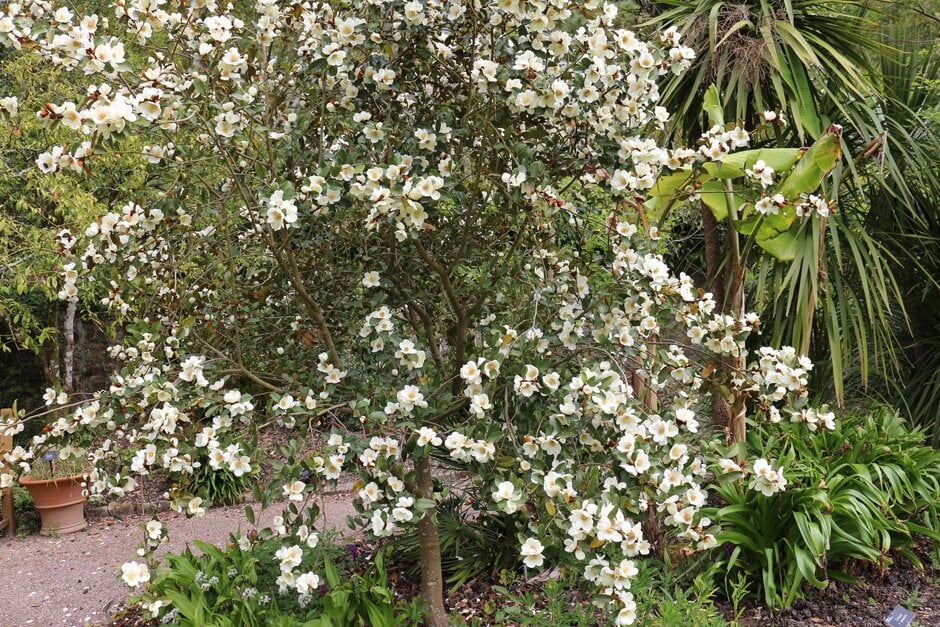Magnolia laevifolia 'Gail's Favourite'
magnolia 'Gail's Favourite'
A compact, very free-flowering selection of this evergreen shrub or small tree to around 2m tall, with young shoots, leaf and flower stalks rusty-brown and felty. Glossy, dark green leaves are lightly downy beneath, and fragrant white flowers with 6-10 petals and white anthers, open from velvety brown buds in mid to late spring
Synonyms
Michelia yunnanensis 'Gail's Favourite'Magnolia yunnanensis 'Gail's Favourite'
see moreMichelia 'Gail's Favourite'

Buy this plant
Size
Ultimate height
1.5–2.5 metresTime to ultimate height
5–10 yearsUltimate spread
1.5–2.5 metresGrowing conditions
Moisture
Moist but well–drained, Well–drainedpH
Acid, NeutralColour & scent
| Stem | Flower | Foliage | Fruit | |
| Spring | White Yellow | Green | ||
|---|---|---|---|---|
| Summer | White Yellow | Green | ||
| Autumn | Green | |||
| Winter | Green |
Position
- Full sun
- Partial shade
Aspect
South–facing or West–facing
Exposure
Sheltered Hardiness
H4Botanical details
- Family
- Magnoliaceae
- Native to GB / Ireland
- No
- Foliage
- Evergreen
- Habit
- Bushy, Columnar upright
- Genus
Magnolia can be deciduous or evergreen trees or shrubs, with large, showy, often fragrant flowers, often opening before the leaves, and sometimes followed by colourful cone-like fruit
- Name status
Accepted
How to grow
Cultivation
Grow in moist but well drained neutral to acid soil in full sun or very light shade with shelter from cold winds. Late frost may damage the flower buds. For more information see magnolia cultivation advice
Propagation
Propagate by semi-ripe cuttings from late summer to early autumn or layering in early spring
Suggested planting locations and garden types
- Architectural
- City and courtyard gardens
- Cottage and informal garden
- Mediterranean climate plants
- Wall side borders
Pruning
Pruning group 9 or pruning group 13 if wall-trained. See magnolia pruning
Pests
May be susceptible to scale insects, horse chestnut scale and capsid bug
Diseases
May be susceptible to coral spot, phytophthora, grey moulds, honey fungus, a virus or fungal leaf spot
Get involved
The Royal Horticultural Society is the UK’s leading gardening charity. We aim to enrich everyone’s life through plants, and make the UK a greener and more beautiful place.